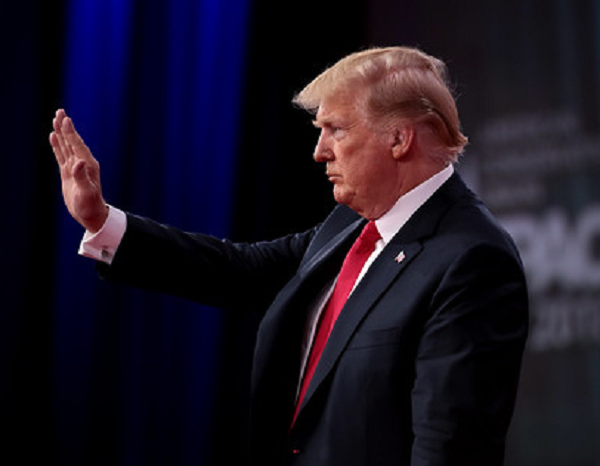President Donald Trump has received support from seven states, who are urging the U.S. Supreme Court to ensure that he remains on the Colorado Republican presidential ballot. These states have filed an amicus brief with the Supreme Court, expressing concern that removing Trump from the ballots could create chaos in the upcoming 2024 presidential election. The attorneys general of Indiana, West Virginia, and 25 other states have warned the court about the broader implications of the Democrat-controlled Colorado Supreme Court’s decision to label Trump as an “insurrectionist” under the 14th Amendment.
The Supreme Court will be hearing arguments on February 8, and they had set a deadline of January 18 for similar briefs. In the meantime, the justices have issued an administrative stay, instructing the Colorado Secretary of State to include Trump’s name on the GOP primary ballot. The states argue that the state court’s ruling, which is based on the false claim that Trump incited an insurrection, has national consequences and poses a threat to the 2024 election.
“Voters who may wish to cast their ballots for former President Trump cannot know whether he ultimately will be excluded from the ballot in their State or others,” they note.
“They may wonder whether a little non-mutual offensive collateral estoppel is all it takes for former President Trump to be excluded from ballots across the Nation.”
Furthermore, they contend that the court’s ruling regarding the definition of an insurrection lacks clear guidelines and is ambiguous. They assert that this decision deprived the 45th president of his right to due process, which includes the ability to call witnesses and engage in the discovery process.
“The Colorado Supreme Court has cast itself into a ‘political thicket,’ . . . and it is now up to this Court to pull it out,” the.
If the Colorado decision is permitted to remain, the states caution that it will undermine the trust in the electoral process.
“Many Americans will become convinced that a few partisan actors have contrived to take a political decision out of ordinary voters’ hands,” they warn.
The brief further advocates for prompt intervention, emphasizing that the court must not allow the prevailing uncertainty to endure. It cautions against the potential escalation of confusion if more states exclude Trump from the ballot as the primaries and caucuses draw closer.
“Any damage may already have been done by the time another case raising similar issues makes its way back to this Court,” the states say.
“And the longer litigation over a national candidate’s eligibility persists, the more uncertainty and confusion will spread.
“Voters need an answer in time to judiciously weigh the merits of competing candidates before casting their ballots, not after voting has begun.”
The brief further asserts that, in the event of its acceptance, additional disqualifications may emerge in the future. It raises the question of whether a president could be prevented from seeking re-election on the grounds of a wartime error that could be interpreted as providing “assistance or support” to adversaries.
“The Court should act now to stop all these ‘strange, far-reaching, and injurious results’ from spinning out of control,” the states say.
The brief asserts that the responsibility of determining the eligibility to hold the position of president lies with the electorate, rather than the judiciary.
“If the voters find former President Trump qualified, and Congress concurs, then the Constitution does not contemplate a time for the judiciary to second-guess that call. Rather, the Constitution gives Congress the sole and final authority to determine whether the President can continue to serve, as many courts have said.”






